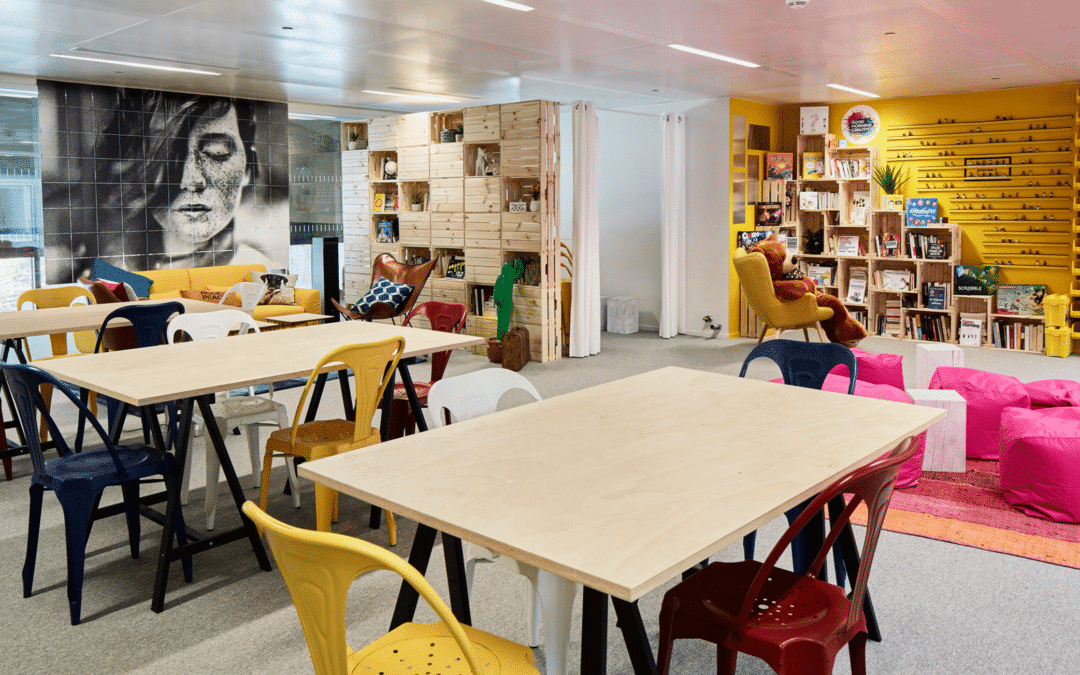The field of possibilities is vast, and we at the Council will be sharing our analyses on each of these subjects with you over the coming months. actively recruiting).
So here are 3 thoughts (not exhaustive) that I share with you and that I hope will inspire your beginning of the year:
Towards the de-siloing of the HRIS
The acceleration of digital transformation is a fact, and HR Information Systems are no exception. SQORUS observes this on a daily basis in its role as integrator, with solutions such as HCM Cloud, Talentsoft, Cornerstone, SuccessFactors… But there is still a long way to go, particularly if we take into account the changing role of HR departments within large companies. The transition from a “support function” to a “business partner” implies a much stronger interconnection between the different IS.
The HRIS as we know it today allows us to catch up with the present. The upcoming HRIS will include different key points to build the future:
- An explosion of SaaS solutions in a “Best of Breed” approach to best meet specific needs. At SQORUS, we have noticed that our customers are often questioning this approach, between the desire to consolidate around a Core HR, and the attraction of editors who can go a little further in certain areas of the ecosystem.
- Better performance monitoring
- Taking account of employees’ physical and emotional problems, in a context where 47% of employees say they are stressed (according to Harvard Business Review in 2022).
- Better use of data analytics and reporting dashboards to support C-Levels
On this last point, the analyses are still in a nascent phase. As integration improves and systems become capable of combining and accessing all workplace information from a single database, the data can be used to optimize many processes and truly identify the reasons behind more workplace problems.
An important work of benevolence towards the HR customers
As SQORUS consultants, empathy is one of the first qualities to positively understand our clients’ problems. But the need for benevolence has become essential with regard to an HR population that is bordering on exhaustion, according to a study released in 2021 by the ANDRH. For example, 61% of HR respondents cited a lack of time and resources. 65% feel that their job is becoming more complex and 69% say they spend at least half their time on administrative tasks.
The role of HR consulting is to keep one main objective in mind: to make the life of HR (and by extension the life of the employees they support) easier.
This also means that it is important to increase the skills of HR teams, to develop a collaboration focused on innovation and agility, rather than perpetuating a situation where we only do things “in place of”.
Essential work to be done on cultural transformation
While many companies had based their culture on physical interpersonal relationships, the remote environment has shaken the very roots of many companies’ cultures.
However, the importance of culture is undeniable. In a 2021 study conducted by Glassdoor, we thus learned that:
- When looking for a new job, 77% of applicants say they consider a company’s culture before applying.
- 65% of millennials are more likely to care about company culture than salary. Those aged 45 and over are 52% to think so as well.
This cultural divide due to the pandemic is already seeing dramatic impacts on businesses, including the cascade of resignations (The Great Resignation / The Big Quit). For example, according to Gartner, only 29% of IT workers plan to stay with their current company.
In this way, the HR Council must guide companies in a cultural reconsolidation, in parallel with the efforts being made on the technological side. This requires a collective refocusing on values, purpose, CSR, but above all, a redefinition of what employees find unique about their employer (or as one of my former clients used to say: “What’s in it for me?”)
We are at a pivotal time for HR, between structural and cultural difficulties, and the opening of an incredible field of possibilities to build solid companies for the next decades. At SQORUS, we’re ready to help you on your way. Don’t hesitate to contact us to discuss your needs.
What tools can you use to manage your HR strategy?
Optimize your HR strategy and discover the essential management tools you need to achieve your objectives. Don't miss this opportunity to successfully manage your HR projects.
See also our feature on "HR strategy management tools".
- What are the key issues facing HR departments today?
- Organization, talent management, recruitment: priority HR projects?
- Human resources management: what HR strategies for the future?
- Best practices to manage your HR strategy in an optimal way
- The different HR management tools to carry out your HR strategy
- HRIS software: the different areas of intervention for the HR function
- How to convince your management to invest in an HRIS tool?
- Is it necessary to be accompanied in the management of an HR strategy?
- What indicators should be defined to measure the performance of an HR strategy?
- HR strategy: how to achieve effective HR reporting?
- Who should drive HR projects in the company?
- Setting up a working group for an HR project: who should be involved?
Contact
A project? A request?A question?
Contact us today and find out how we can work together to make your company’s digital future a reality.













